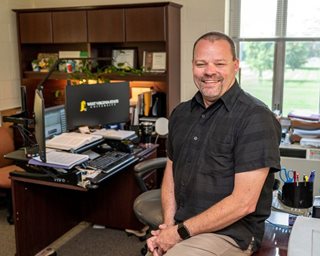Beginning in Spring semester of 2023, the Social Work department began offering the university’s first course in disability studies. The course, SWK 299, is titled Special Topics: Unruly Bodies and Minds – An Introduction to Disability Studies. The course is taught by the Senior Program Coordinator of Disability and Accessibility Resources who is an adjunct instructor in the Social Work department.
The course description is as follows:
An introduction discussion of central concepts and essential information regarding Disability Studies with a focus on diversity, equity and inclusion and learning directly from writers and scholars who experience a wide spectrum of body/mind variabilities. Drawing from interdisciplinary scholarship and multiple perspectives of people with disabilities, students are exposed to varying disability definitions, cultural meanings and representations, social justice and human rights issues, and current bioethical debates related to disability.
The course activities will include practical exercises to assist students in deepening their understanding of the concept of disability and the role the design of the environment as well as negative attitudes and biases play in the level of participation an individual with an unruly body or mind is able to engage based on these barriers.,
Michael Casey, MS, CRC, CDF, LCAS
Adjunct Instructor
Social Work
Senior Program Coordinator
Disability & Accessibility Resources, Disability studies is an academic discipline that examines the meaning, nature, and consequences of disability. The field emerged out of the disability civil rights movement in the late twentieth century. Initially, the field focused on the division between “impairment” and “disability,” where impairment was an impairment of an individual’s mind or body, while disability was considered a social construct. This premise gave rise to two distinct models of disability: the social and medical models of disability. Early scholarship distinguishes the medical model of disability, which locates physical and mental impairments in individual bodies, from the social model, which understands the world as disabling people. The social model names both architectural and attitudinal barriers as the cause of disablement. Over the last few decades, the field has expanded to include individuals with a wide range of disabilities—not just physical conditions, but also mental and chronic ones. In 1999 the social model was universally accepted as the model preferred by the field. However, in recent years, the division between the social and medical models has been challenged. Additionally, there has been an increased focus on interdisciplinary research.
Disability studies emerged primarily in the US, the UK, and Canada. In 1986, the Section for the Study of Chronic Illness, Impairment, and Disability of the Social Science Association (United States) was renamed the Society for Disability Studies. The first US disabilities studies program emerged in 1994 at Syracuse University. The first edition of the Disabilities Studies Reader (one of the first collections of academic papers related to disability studies) was published in 1997. The field grew rapidly over the next ten years. In 2005, the Modern Language Association established disability studies as a “division of study”
Disability studies courses include work in disability history, theory, legislation, policy, ethics, and the arts. However, students are taught to focus on the lived experiences of individuals with disabilities in practical terms. The field is focused on increasing individuals with disabilities access to civil rights and improving their quality of life.
